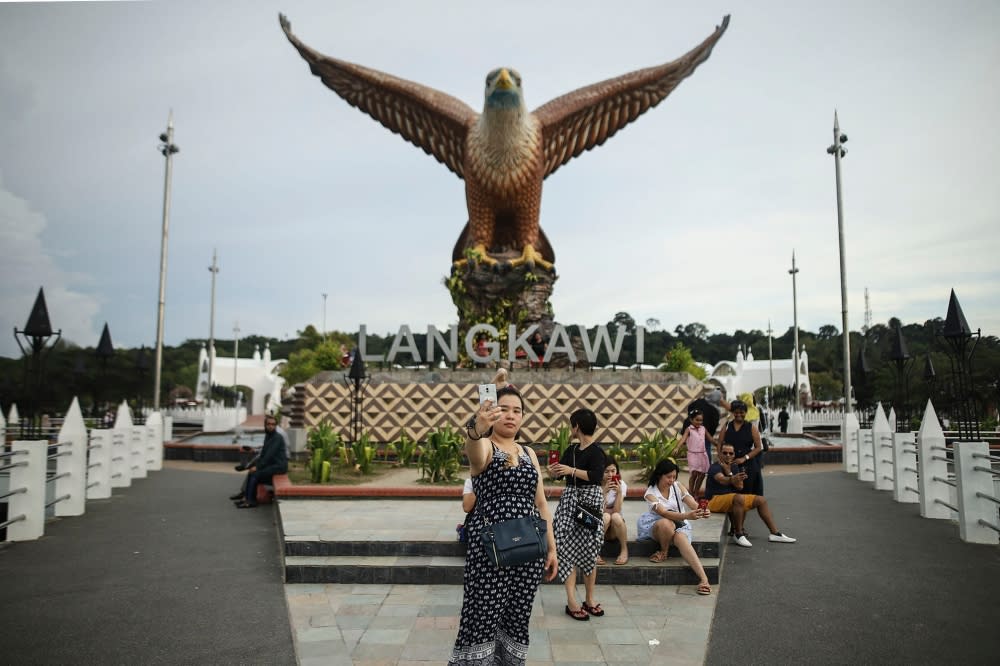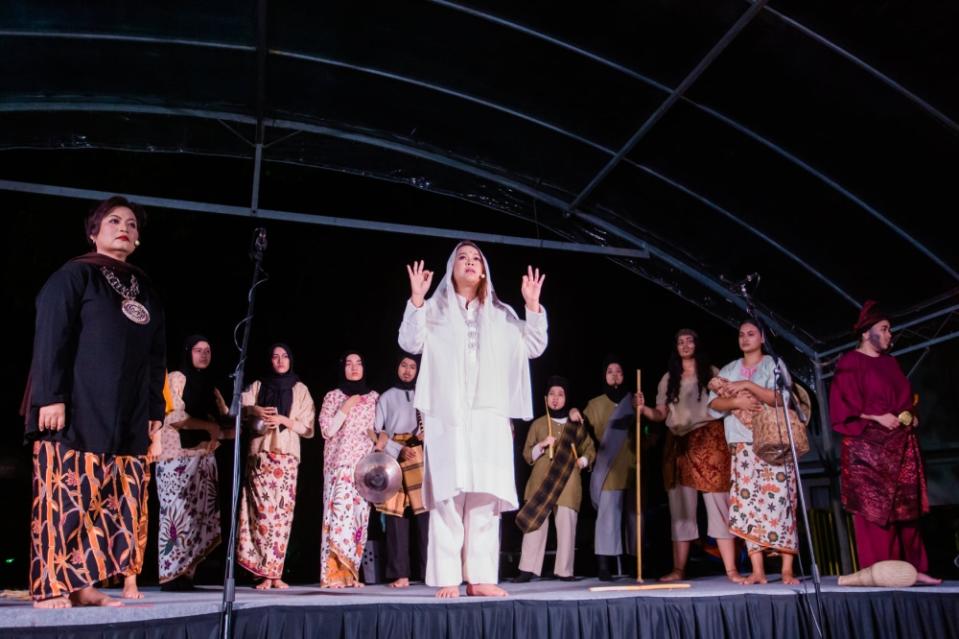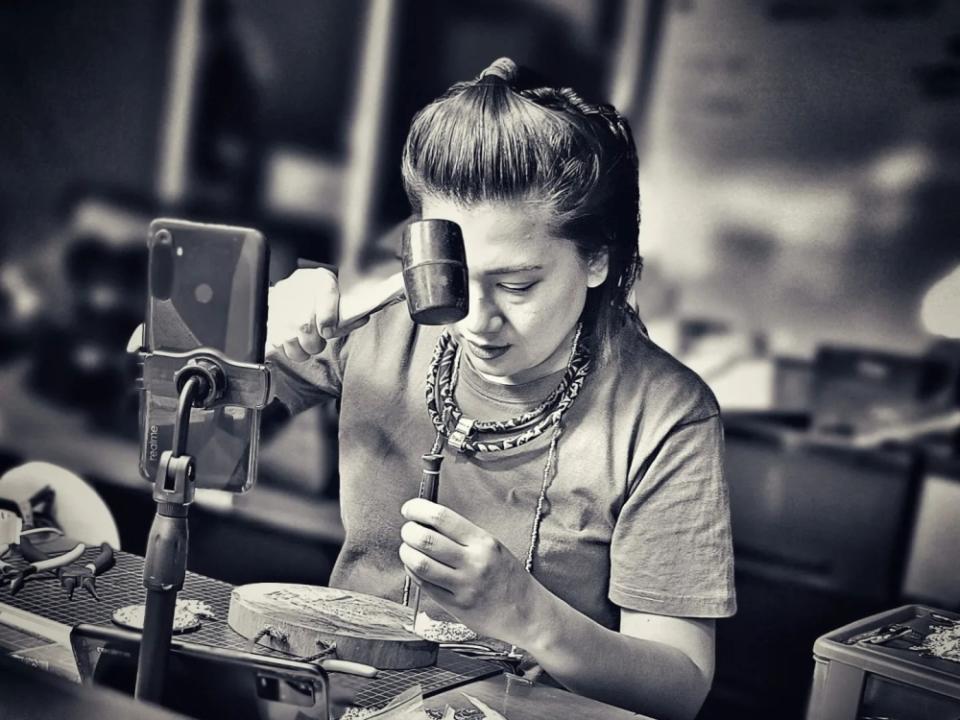Beyond sand and sea: Can Langkawi be an arts and culture hub? Practitioners weigh-in on the prospects

KUALA LUMPUR, June 28 — Langkawi is known for its island resorts, parks, and beaches.
But as more art and cultural initiatives open in the archipelago, the island may prove to be more than just a holiday destination.
Support from Langkawi Development Authority (LADA), Kraftangan Malaysia, and the Cultural Economy Development Agency (Cendana) has made many art practitioners believe it could be a hub for the arts.
However, more programmes are needed in order to connect and sustain smaller artists and businesses across the island.
“There is no shortage of artistic talent in Langkawi, we are an island rich in culture and folklore,” trader Faisol Danker Abdullah told Malay Mail.
“We have many craftsmen and artists, but much more funding and investment is needed to put their work out there to open up opportunities.”
Over the pandemic, many grants by Cendana and cultural organisation Pusaka were given out to boost the traditional arts scene in Malaysia.
Cultural art initiatives were able to adapt to working online and through social media and grow their businesses thanks to the funds from grants.
Faisol said tourism has helped the trade of products in arts and crafts but felt gallerists and curators could help to give more exposure to the work of local artists.
He believes more investments from the mainland and foreign countries can help to bring progress to the smaller, niche art communities on the island.
Inspiring the young

‘Pulau Sri’, a musical production retelling the Malay folktale of Mahsuri organised by Suatukala. — Picture via Facebook/suatukala
Suatukala is a non-profit initiative founded in 2015 to inspire storytelling among the youth of Langkawi through performing arts workshops, talks, and performances
Co-founder Lina Tan told Malay Mail that their programme has been able to raise a new generation of talented performers.
“The youth respond well to the opportunity we give through our programmes in the rural communities,” Tan said.
“Recently we held a yearly workshop called ‘Rekacerita’ which allows students from four schools to create their own original theatre performances,”
She added that she was impressed that her students were able to perform in front of a sold-out audience in Panggung Seni, Kota Mahsuri at the showcase last September.
With funding from Cendana, the winners of last year’s workshop were able to go on a trip to Kuala Lumpur to visit Astro and got BookXcess vouchers.
Suatukala also runs musicals that retell Langkawi’s folk tales with a modern twist, performing Pulau Sri (a modern remix of Mahsuri) and recently Walimatalurus in 2022.
Suatukala co-founder Karina Robles Bahrin said it has encouraged audiences and supporters to donate to the initiative, even if they can’t travel to Langkawi to see the show.
“It’s remarkable to see the kids grow into confident performers, it’s all because of the teachers who we work with to spur them to express their creativity,” Robles Bahrin told Malay Mail.
“Even veteran performers we invite from the mainland like Kuah Jenhan and Razif Hashim found it highly rewarding to share their knowledge and work with the kids.”
Expanding horizons

Ash Majid at her workshop crafting batik accesories in Langkawi. — Picture via Facebook/handmadeaccessoriesbyashmajidlangkawi
Ash Majid started as a small bedroom business in 2013 making batik accessories run by the husband and wife team of Ash Majid and manager Meor Ezammer.
Today, their shop has been able to grow exponentially, thanks to grants from Cendana they have been able to move their business into a commercial lot.
Their batik-designed chokers have been featured on the necks of people like Deborah Henry and Tunku Soraya Binti Almarhum Sultan Abdul Halim.
“There is a lot of support for the arts and crafts that have been given out but some of the artists may not or don’t desire to expand their business,” Meor told Malay Mail.
“Some of them spend the grant money on other ventures because of high maintenance costs needed to buy a premise and break even.”
During the pandemic, Meor and Ash received grants from government bodies Kraftangan Malaysia and Majilis Amanah Rakyat (MARA) which greatly helped their online business.
“Ninety five per cent of our customers don’t come from Langkawi. We often receive online orders from KL or Malaysians living in foreign countries like Australia and Britain.” the manager said.
“Kraftangan Langkawi also invites us to set up booths at craft festivals in KL, our most recent was the Craft Week in Publika last October.”
However, complex and tedious registration procedures when applying for public grants have been one of the main reasons local artists have not applied for them, according to Meor.
The bigger picture
Among the practitioners, it was generally agreed that Langkawi had the potential to become an arts hub, but more support from public institutions is needed.
Aside from National Craft Day and state bazaars, there have not been many programmes or initiatives planned this year by public bodies like Kraftangan Langkawi when asked by Malay Mail.
“Langkawi is a very unique island, with a high potential to have a thriving art community,” Meor said.
“We have the facilities to make it happen, but unlike islands like Bali or Phuket we don’t see a constant flow of tourists throughout the year.”
“We (Ash Mahjid) have been lucky when it comes to public funding but many other art-related businesses don’t have the same opportunities and find it unprofitable to keep going.”
Robles Bahrin said that helping smaller organisations with the rising operations costs can ensure the creative arts can continue to thrive among the younger residents.
She added that the island has great potential to spotlight Malaysia’s diversity to foreigners through its arts and cultural efforts.
“We often forget that to many tourists Langkawi is the gateway to Malaysian culture,” Robles Bahrin said.
“Yet, we only find Malay culture being represented and supported, not showing our multicultural society through the arts in a ‘Malaysian’ island.”



